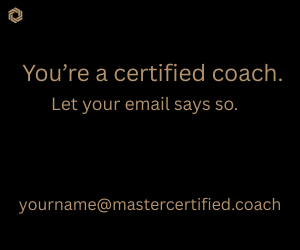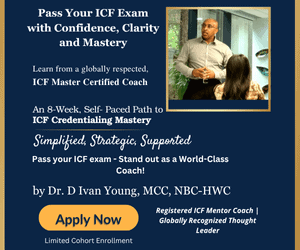What if your coaching practice was fully booked without you ever having to do any sales? Isn’t this what we all dream of? While it almost sounds too good to be true, there is a way to achieve exactly that: ethical enrollment.
Our practice works with clients who invest up to € 50,000 to work with a coach, but none are ever “sold.” Allow me to share the journey of our clients from getting to know each other to starting to work together and their potential investment of a substantial amount of money.
Everyone Wants to Test Drive the Car
Before a prospective client invests in your coaching services, they need to not only imagine what it may be like working with you, but also to fully experience it before committing. Think of test driving a car. Have you ever just bought a car off the internet without taking it around the block at least once? Probably not. We want to experience what driving that car feels like before buying it.
The same goes for coaching. Your prospective clients need to experience your coaching magic to decide if they want to continue this work or not. Notice how we say continue instead of start!
In our practice, all prospective clients go through a two-week Kickstarter experience. We work together for two full weeks. We allow our clients to fully experience what it is like to be coached by us.
These two weeks are the “test drive.” We get to know the client. The client gets to know us. Only then do we invite them for what we call the enrollment conversation.
Turn Selling into Coaching
After the client has gotten to know our work and we have gotten to know our client, we have the formal enrollment conversation.
The central question of the enrollment conversation is: would this client and I be a great fit to work together? If so, what would working together look like? If not, who may be a better fit to serve this client?
See, this isn’t about sales at all. We are talking coaching! These are questions a client could bring to a coaching conversation. And just like whatever a client brings to a coaching conversation, we as coaches don’t influence the outcome. For example, a client could be facing a dilemma of whether to move to London or Las Vegas. It’s not our decision to make and we stay fully detached, creating room for the client to come up with their own most authentic and truthful answer. In the case of the enrollment conversation, all we care about is that our client leaves the conversation with clarity. Is it a clear “yes” to working with us or is it a clear “no?” Just like any other coaching session, we stay detached from the outcome. It’s never about us, it’s always 100% about serving the client.
The enrollment conversation is always scheduled separately. There are no squeezed in 5-minute pitches at the end of a 20-minute “strategy session.” Remember, we don’t sell. We ethically enroll. And enrollment means coaching. Coaching needs space. Coaching needs time. A 5-minute pitch that leaves everyone feeling awkward doesn’t do justice to the magic of coaching.
Make New Connections
These days, many coaches are becoming full-time online marketers and part-time coaches. In my experience, you can only become a very successful coach by doing one thing: coaching. It’s what you love doing most anyways, right? Just as you no longer have to sell, you no longer need to market. Ask any person you coach this question: “now that you have experienced my work, who do you know who would benefit from having a conversation with me?” And then it begins again. You meet. You coach. You allow the prospective client to experience your magic. You have an ethical enrollment conversation about whether or not they would love to continue this work with you. You ask who else would benefit from speaking to you.
And that is exactly what we invite you to experiment with:
A baker bakes and a coach coaches. Have as many full coaching conversations as possible. Schedule separate enrollment conversations rather than pitching your services in the last five minutes of a call. Put on your coach’s hat. As a coach, you don’t care about the outcome. It’s all about finding out whether the client truly desires to continue working with you.
Be human and be of service. Ask people you are having conversations with, “who do you know who would benefit from speaking to me?”
This is how you move from selling to ethical enrollment.
Disclaimer
The views and opinions expressed in guest posts featured on this blog are those of the author and do not necessarily reflect the opinions and views of the International Coach Federation (ICF). The publication of a guest post on the ICF Blog does not equate to an ICF endorsement or guarantee of the products or services provided by the author.
Additionally, for the purpose of full disclosure and as a disclaimer of liability, this content was possibly generated using the assistance of an AI program. Its contents, either in whole or in part, have been reviewed and revised by a human. Nevertheless, the reader/user is responsible for verifying the information presented and should not rely upon this article or post as providing any specific professional advice or counsel. Its contents are provided “as is,” and ICF makes no representations or warranties as to its accuracy or completeness and to the fullest extent permitted by applicable law specifically disclaims any and all liability for any damages or injuries resulting from use of or reliance thereupon.
Authors
Post Type
Blog
Audience Type
Experienced Coaches, External Coaches, ICF Chapter Leaders, Internal Coaches, Mentor Coaches, New Coaches, Professional Coaches, Team and Group Coaches
Topic
Building a Successful Coaching Business, Business Development
Related Posts
The Executive Coaching Blueprint: Positioning, Pricing, and Performance
Transitioning from corporate to coach can feel like uncharted territory for many…
Why Coaches Need Other Coaches
Setting the Foundation When you’re learning about the field of coaching while…
Expanding Coaching Possibilities With the Coaching Spectrum Framework™
When I discovered coaching 14 years into my career as an occupational…








